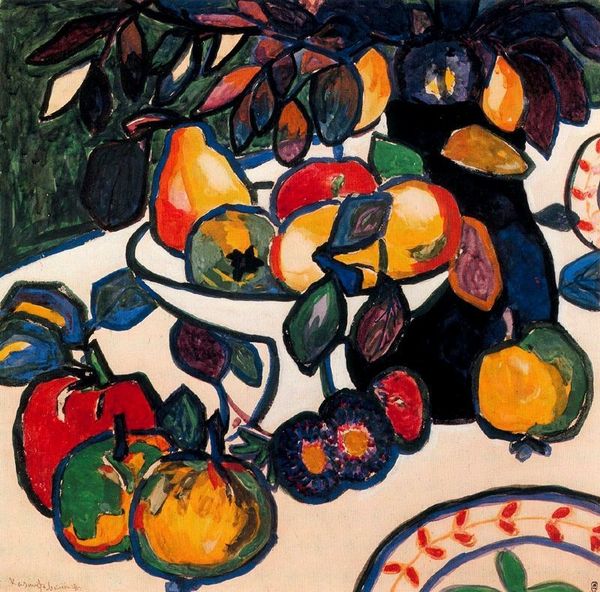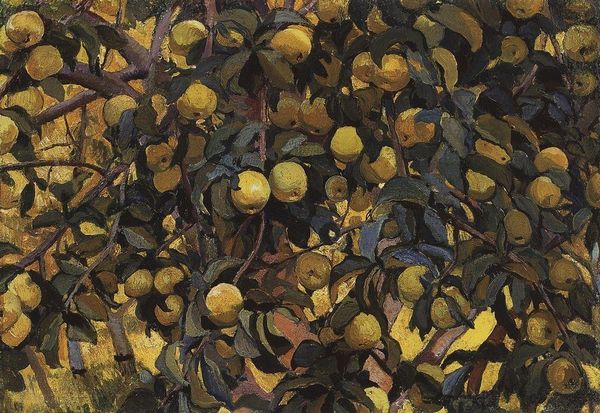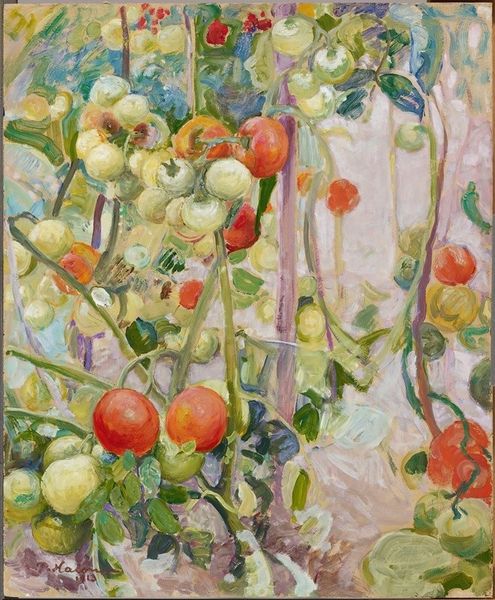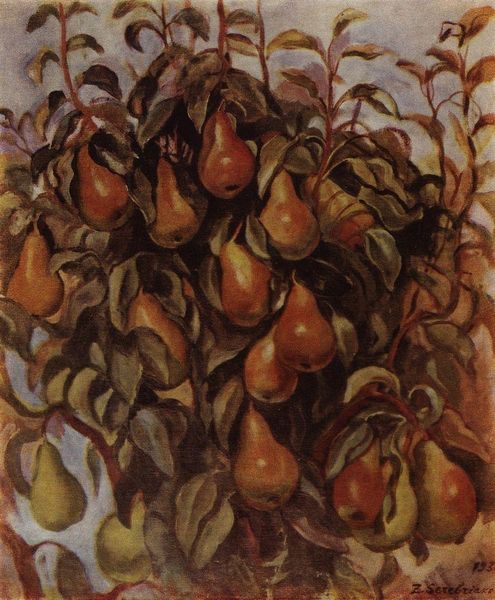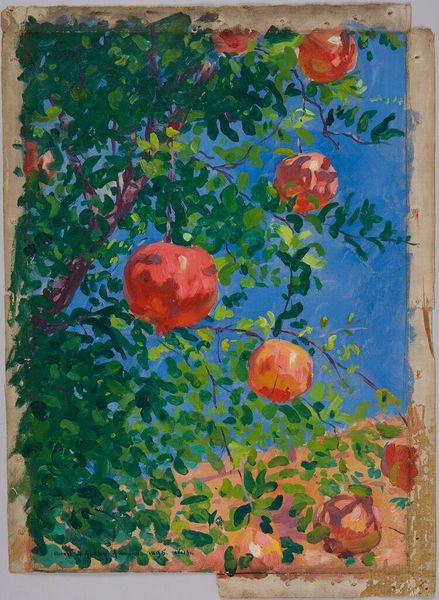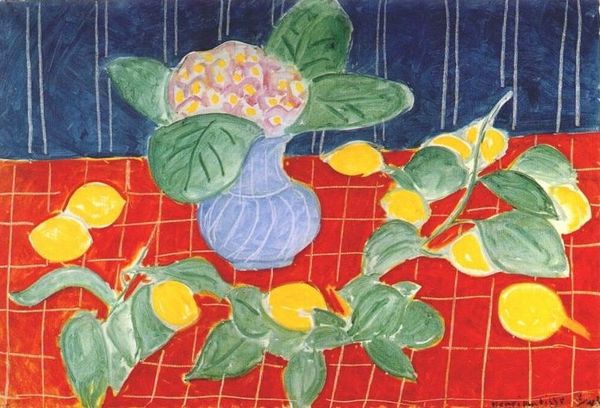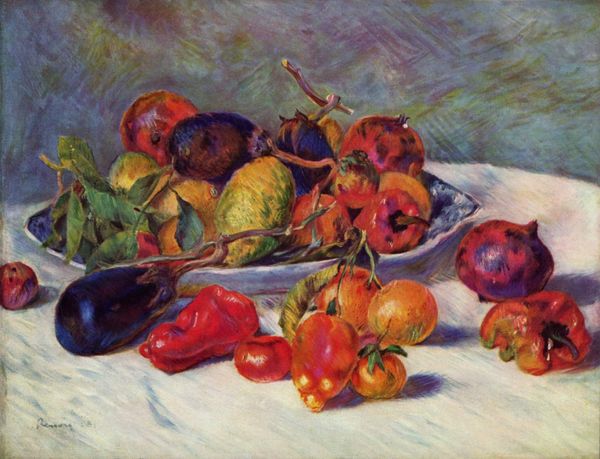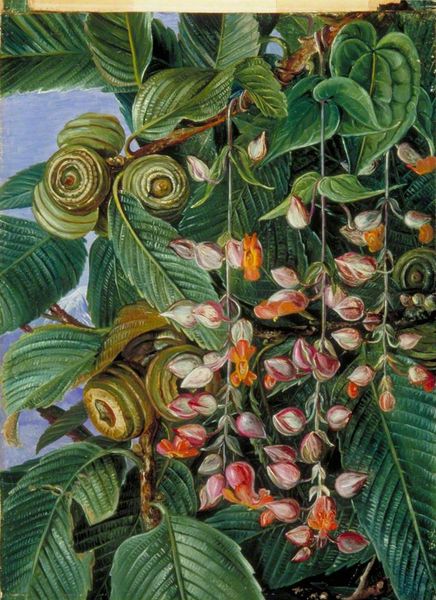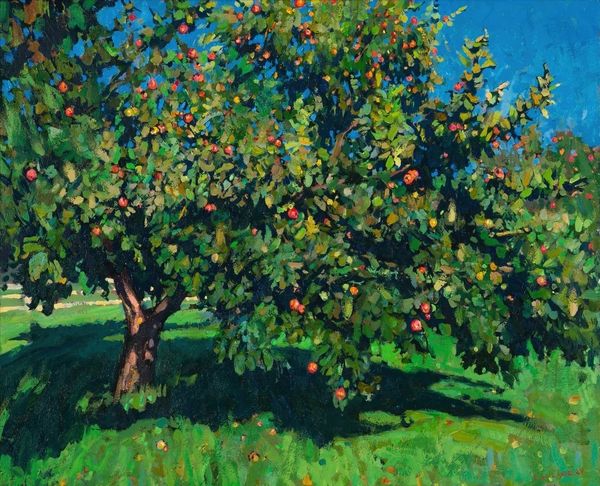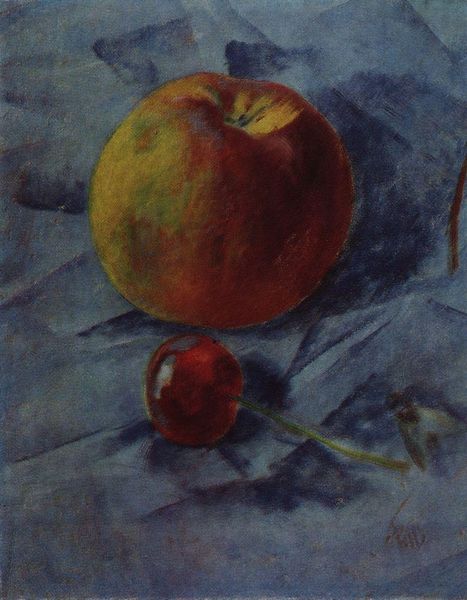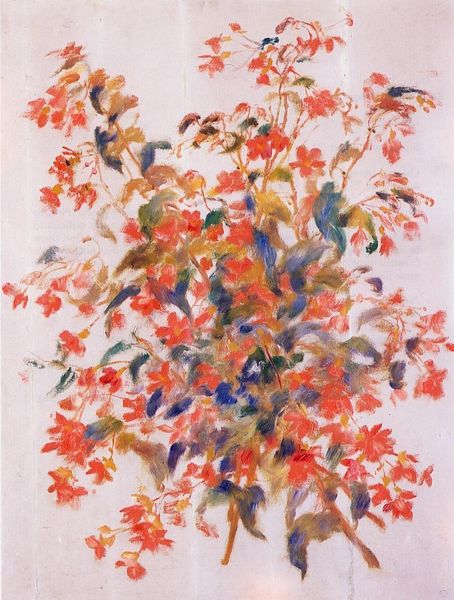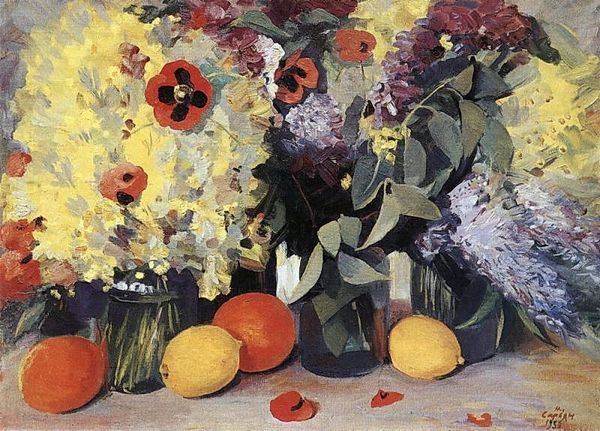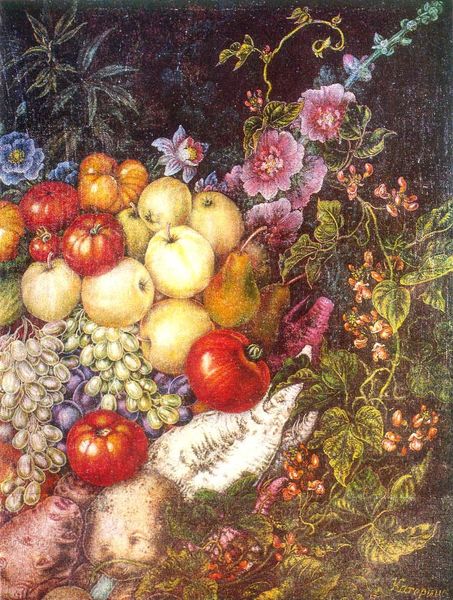
painting, plein-air, watercolor
#
organic
#
painting
#
impressionism
#
plein-air
#
impressionist landscape
#
watercolor
#
fruit
#
plant
#
post-impressionism
Copyright: Public domain
Theo van Rysselberghe painted this watercolor, Cherries, sometime in the late 19th or early 20th century. Van Rysselberghe, a Belgian painter, was part of the group of artists who pioneered Pointillism, a painting technique that aimed to create maximum luminosity and color vibration on the canvas. But what does it mean to depict cherries in this way? What do they signify within the social and cultural context of Europe at the time? Fruit, flowers, and leisure activities were recurring themes in the paintings of the European bourgeoisie. These paintings mirrored their refined tastes and social standing. By exploring catalogs, letters, and exhibition records, we can dive into the world of van Rysselberghe and learn about the economic structures that allowed him to create this artwork. The meaning of this painting becomes clear only with a look at the social and institutional context.
Comments
No comments
Be the first to comment and join the conversation on the ultimate creative platform.
